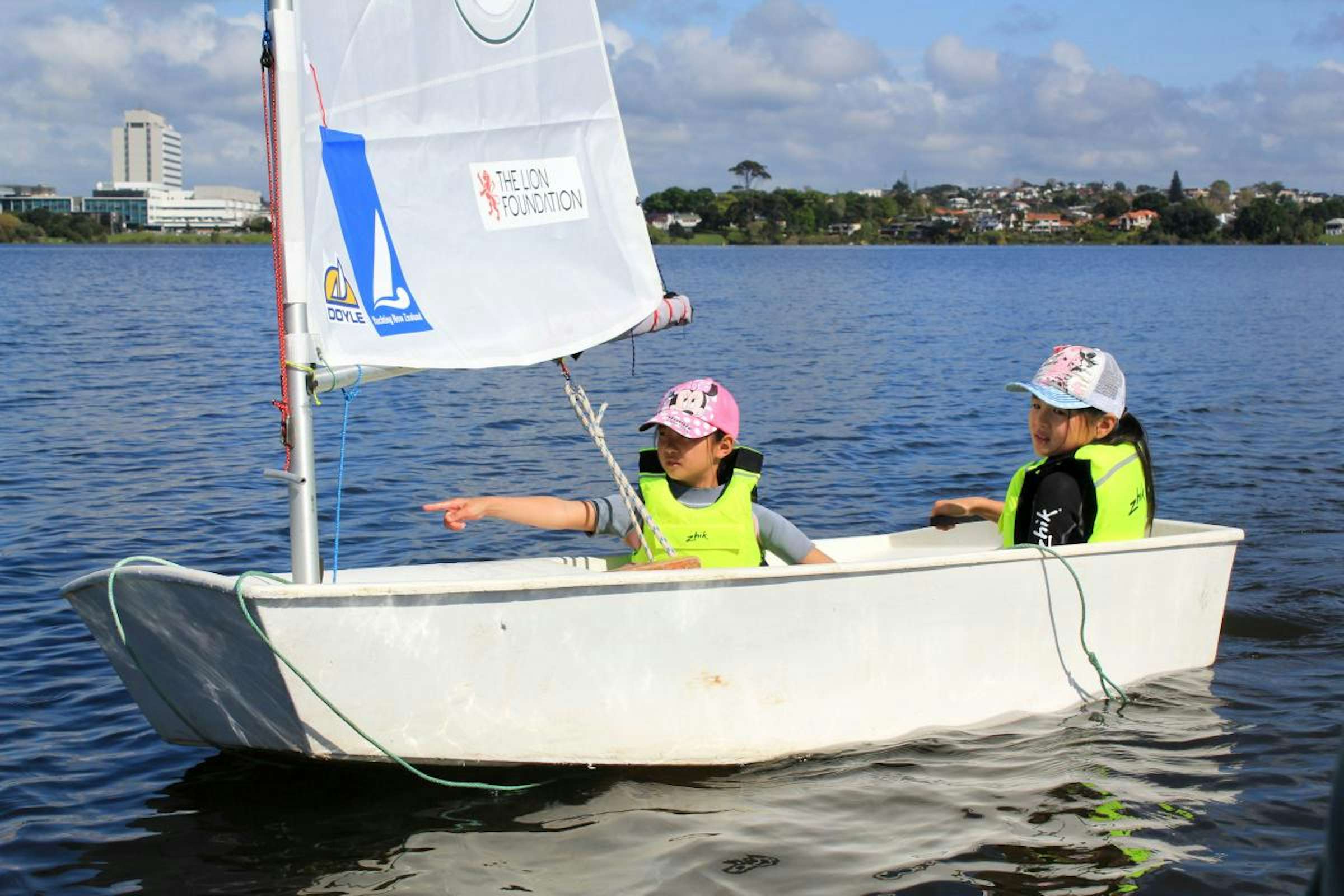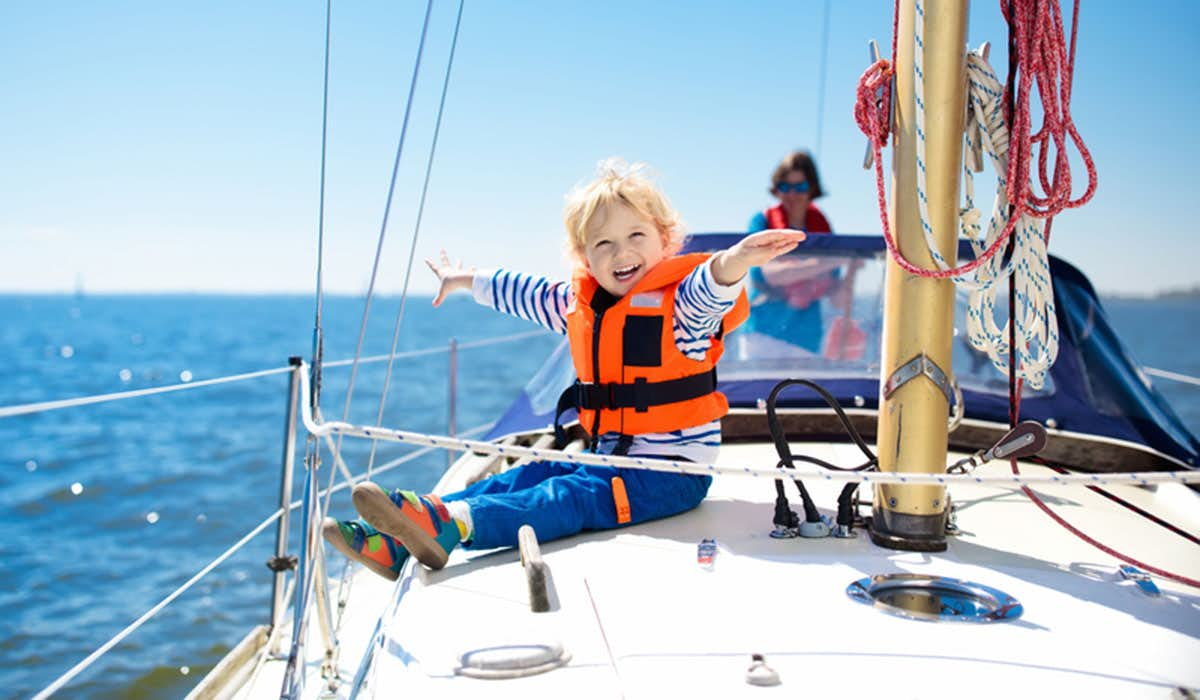
How to get your kids boating
Photo: www.yachtingnz.org.nz
How good is it if your children share your DNA when it comes to a love for boating.
But, what to do if boating is your passion, yet your children aren’t feeling that same love?
If the latter scenario applies, a good place to start would be attempting to change their mindset by showing them just how much fun there is to be had. It’s also smart to identify if there’s an obstacle in the way, hindering potential enjoyment…like a feeling of insecurity, or fear of the water. If that’s the case, find a safe boating programme or recommended online course.
Regardless of your children’s levels of boating enthusiasm, engaging them in a safe boating programme is a smart move on the “how to get your kids boating” journey.
Safety first
There are specific Safe Boating Programmes, devised with children in mind, providing practical boating and water safety experience (they suit all levels of confidence and are highly recommended for all boating children). Boating activities are taught in a fun, controlled and safe environment, with lessons including in-water survival techniques and taking responsibility for personal safety. More information is available here. This boating education site includes an excellent video, presented by children, addressing many safety-related questions. It’s a great clip to watch with your children.
Teaching your kids about boats
The Discover Boating website features an article on teaching your kids about boats (and another article focused on ways to make your kids fall in love with boating).
There are some key safety lessons your children need to know, like the importance of buckling up - wearing a lifejacket is the law. Also, inform them about the meanings of red and green aids to navigation.
Get them involved in charting a course. It’s fun, and you can show them how to set the waypoints on your marine GPS. Also, teach them how to read the clouds to gauge the weather forecast - learning which signals caution.
Falling in love with boating
There’s obviously much to love about boating. Oceans, lakes and rivers make for great playgrounds with plenty of fun to be had thanks to watersports, fishing and sailing, for example. There’s a thrill to be had from just spending time out on the water enjoying the peace and calm.
In terms of watersports…there are many how-to articles on the Discover Boating website focused on wakesurfing, watersking and wakeboarding. The advice is to check these out with your children and see what may spark interest. The site suggests it’s a good idea to start your children off tubing, progressing to kneeboarding before tackling the more advanced watersports.
Perhaps it’s sailing that floats your child’s boat. Check out the blog penned by NZ sailor Melinda Henshaw, who shares her knowledge on building water confidence (as a sailing coach she so often comes across low water confidence in children.) There’s the opportunity to sign up for Melinda’s newsletter in order to gain plenty of smarts around teaching your children to sail.
“The most important thing with teaching someone to sail is that the process is a gentle one. The kids will pick up confidence and concepts at their own pace according to their level of water confidence and coordination,” Melinda says.
For more on sailing with children, both Boating NZ and Yachting NZ have plenty of wisdoms on their websites.

Keeping things age appropriate
This Without A Hitch website article acknowledges that while some people consider kids and boats a dangerous combination, that’s not the case if proper training has been enforced and they’re taught the ropes according to their ability. As they grow and gain agility, balance, strength, and maturity, they’ll be more capable of taking on greater responsibility and tasks.
There are even age-appropriate simple, light tasks for pre-schoolers. Get them coiling ropes, or stowing cushions and light equipment, and learning boating vocab. As they age, teach them about stability, loading the boat, and how to get in and out of dinghies and small boats.
Around school age, have them learn to row a boat or paddle a canoe. Sailing, kayaking, board riding or windsurfing will also give them confidence, improve balance and control, and help them understand the water, the article says.
As they get older, teach them more specific emergency procedures, such as:
- Where all the emergency items are located and how to use them.
- What to do in different emergency situations.
- To stay with a capsized boat or an easily seen floating object, so they will be easier for rescuers to spot in the water.
- Positions like ‘Huddle’ and ‘HELP’ (Heat Escape Lessening Position) reduce the danger of hypothermia if someone goes overboard.
- How to use equipment such as radios, EPIRBs and flares when in danger.
Kids love using smartphones and tablets, so download some boating apps and have your budding sailor learn how to use them.
Children are never too young to learn about water safety. Teach them to wear proper-fitting lifejackets at all times; to use sunscreen and wear protective clothing, and to keep well inside the boat when it is underway. Also, ensure they know how to swim.
Whenever they’re onboard your boat, teach your kids to recognise tides, sandbars, reefs or shallows, and drill into them the rules on keeping lookout, avoiding collisions, reducing wash, and obeying signs, buoys, poles, lights and markers.
“The best lessons you can pass on to your children are the rules and the reasons behind them. It’s a lot easier to learn to do something when you understand that someone’s life could be in danger if you don’t do it correctly.”
Pass on your knowledge and your kids are more likely to become responsible, confident and safe boaters.
Why boating is good for children
Children who are into boating are more likely to be outgoing, leaders, physically active, healthy, happy and responsible. So say the results of a survey by Impulse Research Corp, cited in an article by Randy Vance of BoatingLife Magazine.
Randy poses the question…does enjoying this one activity (boating) intensely help people enjoy other activities more? To eye unpleasant tasks with less loathing? His summation:
“Maybe it’s just that when families set aside time specifically for boating, leaving home and chores behind, the act of committing to recreation for a finite period actually does refresh and revitalize the ability to attack responsibilities with more enthusiasm -- and better results.”
Kids who boat spend an average of one hour per week more quality time with their parents than nonboaters -- even in the winter months, he tells us. Furthermore, he’s found…
“They’re 18 percent more likely to participate in household chores, 13 percent more likely to help with cooking, 10 percent more likely to help with gardening and 5 percent more likely to have a paying job. On average, boating kids regularly participate in 8 activities, compared with only 4 to 5 activities for non-boating kids,” he says.
If you still needed convincing that boating with children is a good idea, then those percentages above should do the job!